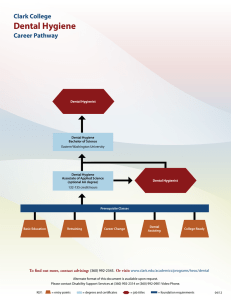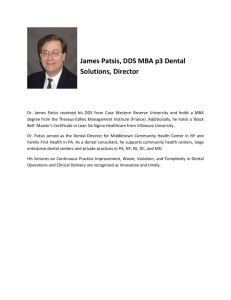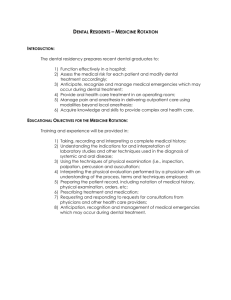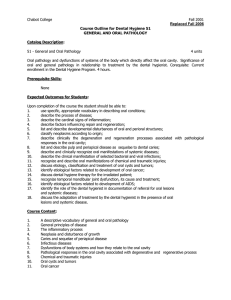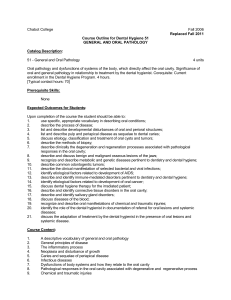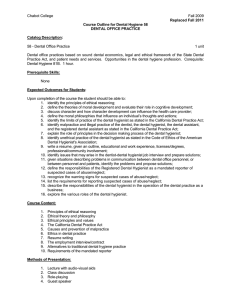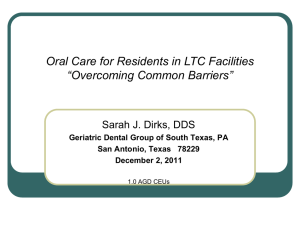Self Reflection Paper- Janelle Rumball Dhyg 110
advertisement
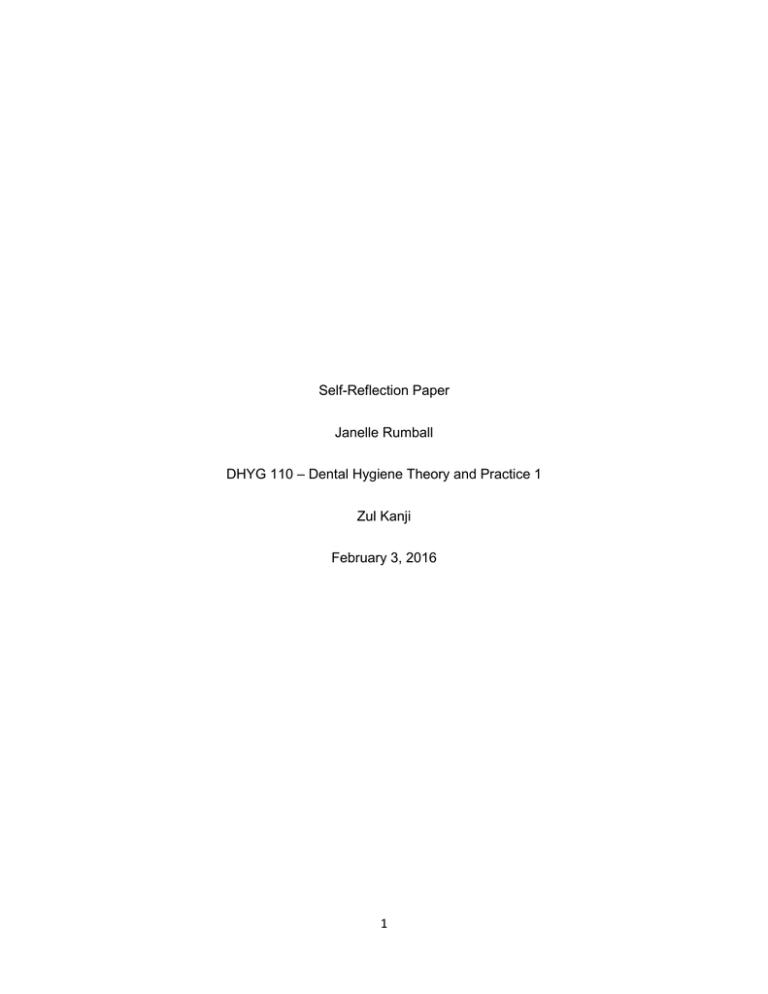
Self-Reflection Paper Janelle Rumball DHYG 110 – Dental Hygiene Theory and Practice 1 Zul Kanji February 3, 2016 1 All my life I have been surrounded by health care professionals - plastic surgeons, orthodontists, ENT’s, audiologists, speech therapists, and dental hygienists. My treatment, continual and ever changing, is the reality one experiences when born with a cleft lip and palate. It is part of who I am, and will further become. Most importantly, it is why I chose to become a dental hygienist. When I look back at my life, I recall many instances of anxiety, passiveness and fear. It was difficult being different, and at times terrifying being treated by many healthcare professionals. Through my treatment plan, I discovered my voice and learned how to effectively advocate for myself. It is from these experiences I have greater ease in communicating, especially one-on-one. I am very mindful of how I relate my thoughts to others while being respectful to their values and opinions. However I am reserved and shy, making it difficult to speak to / within a large group as a result of my cleft. In choosing to be a dental hygienist, my communication style will have an impact on how I interact with a wide range of differing personality and characteristics. Some will be assertive or outgoing, while others may have communication styles I am unfamiliar with. In order to effectively communicate with my peers, co-workers and clients, I will need to know my communication style, strengths and weaknesses, as well as remembering those around me will have separate ways of communicating through their own experiences. With the time spent with various specialists, I believe they each have helped to, and continue to, influence the way I relate to others. For example, I feel my level of maturity is higher than that of peers in my age group. I tend to interact better with those that are older / at a similar maturity level as myself. This helped develop my ability to consider what actions I take now can affect future outcomes. In researching communication styles, I believe mine has evolved into a functional communicator. I like to be prepared with all the details (big and small), have a timeline and plan of action thought out well in advance. When communicating tasks to be completed, I clarify things 2 step-by-step, so no detail is overlooked and every point makes sense. The particular way I write, as well as self-reflect on topics, further strengthens my belief I am a functional communicator. Brainstorming / writing down what comes to mind is beneficial in preparing how I want to address a subject. Some topics start out broad so I plan early on and start with a simple rough draft. This includes organizing main points into different paragraphs to further work on them individually. Once all points have been addressed, I begin to integrate them together and edit the content in order to communicate it in an efficient way. During this self-reflection process I began to appreciate how professionalism and critical thinking are integrated into effective communication. In an attempt to demonstrate my skills and knowledge in this process, I approached this topic with an open mind to discover my strengths and weaknesses. My goals were centered on being clear, focused, and flexible in order to share my honest thoughts in a proper writing format. I now see how my cleft helped influence my communication style in conjunction with interactions with others. I also appreciate it as a major factor in choosing to go into dental hygiene. I enjoy knowing that I will have the opportunity be a positive influence in people’s lives. I know I will be able to show the same outstanding care, empathy, and compassion I received through my own treatment. I will continually evolve in how I relate with others as a person and a dental hygienist, just as my professional and critical thinking abilities will continue to advance further. 3
